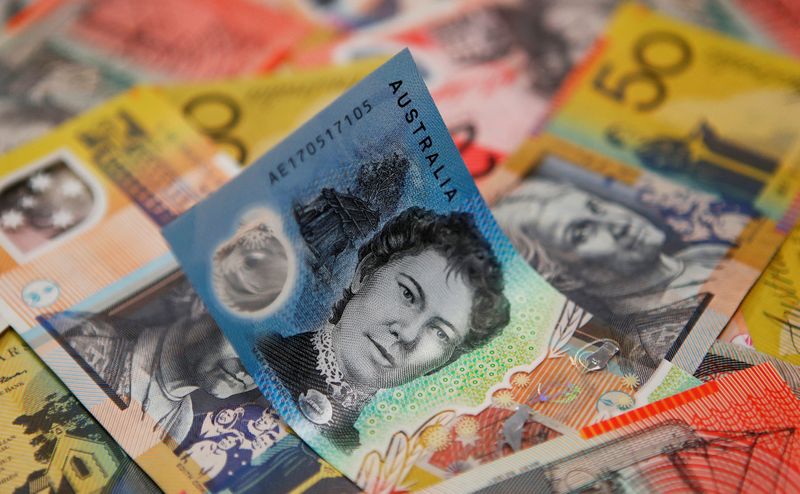By Byron Kaye
SYDNEY (Reuters) -Central banks had been "caught napping" with respect to inflation and would have to raise interest rates more aggressively as a result, extending equity market turmoil, the head of Australia's sovereign fund said on Wednesday.
The chair of the Future Fund, which covers pension liabilities for Australian public servants, also criticised the Reserve Bank of Australia (RBA) for giving "wrong" inflation guidance.
The rebuke from Peter Costello, a former federal treasurer, builds on criticism in Australia about the RBA's handling of economic shocks stemming from the COVID-19 pandemic. The new centre-left Labor government has said it will hold a review into the RBA.
"It's our belief that monetary authorities both in the U.S. and Australia were caught napping with the surge in inflation, and now the rate rises are going to have to be much more significant than if they had begun to act earlier," Costello told reporters on a call after the fund posted an annual loss on its investments.
"As rates rise, over the course of this year and into next year, we would expect that equity markets will be soft," he added.
Australia "came late to the tightening of (monetary) policy", he said. That meant that the RBA would "continue to move faster (and) this means there will be higher unemployment as we go forward".
The RBA's earlier guidance that rate increases would not be needed until 2024 was "wrong", he said, and the money the RBA spent buying bonds to intervene on the bond market was "wasted".
"It wasn't a very good chapter for the Reserve Bank. We hold governments to account. We've got to hold central banks to account too," he said.
An RBA spokesperson declined to comment but referred to recent statements by RBA Governor Philip Lowe, saying the 2024 commentary was conditional on economic conditions remaining the same, which they did not.
The roughly A$200 billion Future Fund said it made a loss of 1.2% in the year to end-June, better than a decline of more than 10% in global equities and bonds.
But it noted that it returned 22.2% the year before, meaning its performance against a 10-year target of returning an average of 6.6% a year was relatively unaffected.

Since a year ago, the fund said it upped its exposure to "alternatives" like infrastructure to 17.8% of total funds under management, from 13.2%. It cut its equity exposure to developed markets to 15% from 18.2% and cut its equity exposure to emerging markets to 5.4% from 9.1%.
($1 = 1.4586 Australian dollars)